
The Pontiff’s reflection was inspired by the day’s reading from the First Book of Samuel (1:9-20), which speaks of three protagonists: Hannah, Eli the priest, and the Lord. The woman, explained the Pope, “with her family, with her husband, went up to the Temple to worship God”. Hannah was a devout and pious woman, full of faith; however, she “bore within her a cross that caused her a great deal of suffering: she was barren. She wanted a son”.
The description of Hannah’s fervent prayer shows how she “struggled with God”, she implored him at length, with “deep distress, weeping bitterly”. The prayer ends with a vow: “O Lord of hosts, if you look with pity on the misery of your handmaid, if you remember me and do not forget me, if you give your handmaid a male child, I will give him to the Lord for as long as he lives”. With deep humility, Francis explained, recognizing herself as “miserable” and as “handmaid”, she “vowed to offer her son”.
Therefore Hannah, the Pope emphasized, “gave her all in order to attain what she wanted”. Her entreaty was noticed by the elderly priest Eli, who “watched her mouth”. Hannah “was praying silently”, only her lips were moving, and her voice could not be heard. The image offered by the Scripture is extraordinary, because it reflects “the courage of a woman of faith who, with her sorrow, with her tears, asks for the Lord’s grace”.
In this regard the Pontiff commented that in the Church there are “many such good women”, who “pray as if it were a challenge”, and as an example, he recalled the figure of St Monica, Augustine’s mother, “who with her tears managed to attain the grace of her son’s conversion”.
The Pope then analyzed the character of Eli, who was not wicked but was “a poor man” for whom Francis feels “a certain fondness”, because “in myself too”, he admitted, “I find defects that bring me close to him and enable me to really understand him”.
This elderly priest “had become tepid, had lost his devotion” and “did not have the strength to stop his two sons”, who were “delinquent” priests. Yes, they were truly wicked men “who exploited people”. Eli is a “poor and feeble man”, and is therefore incapable of “understanding this woman’s heart”. In seeing Hannah moving her lips in anguish, he thinks: “This woman has drunk too much!”. The episode holds a lesson for all of us: “how easily”, Francis said, “do we judge people, how easily do we lack the respect to ask: ‘What must she have in her heart? I don’t know, but I’m not saying anything’”. He then added: “When the heart lacks pity, we also think badly, judge badly, perhaps to justify ourselves”.
Eli’s misunderstanding is such that “finally he says to her: ‘How long will you make a drunken show of yourself?’”. Hannah, in her humility, does not respond: “Old man, what do you know about it?”. On the contrary, she says: “It isn’t that, my lord”. And despite knowing all that Eli’s sons had done, she does not rebuke Eli or point out: “What do your sons do?”. Instead she explains to him: “I am an unhappy woman. I have had neither wine nor liquor; I was only pouring out my troubles to the Lord. Do not think your handmaid a ne’er-do-well; my prayer has been prompted by my deep sorrow and misery”.
In these words Pope Francis identified Hannah’s “prayer with sorrow and misery”. She “entrusted that sorrow and misery to the Lord”. And in doing so, the Pontiff added, Hannah reminds us of Christ. Indeed, “Jesus experienced this prayer in the Garden of Olives, when his sorrow and misery were so great that his sweat became blood, but he did not rebuke the Father: ‘Father, if you are willing, remove this from me, but thy will be done’”. On the contrary, “Jesus responded in the same way as this woman: meekness”. Pope Francis then observed how at times “we pray, we ask the Lord, but so often we do know how to reach that struggle with the Lord, to tears, to ask, to ask for grace”.
In this regard Francis described an event that happened in the Shrine of Luján, in Buenos Aires, where there was a family with a nine-year-old daughter who was very ill. “After weeks of treatment”, the Pope recalled, “she did not manage to escape that illness, it had worsened and the doctors, at around six o’clock in the evening” said that she had only a few hours left to live. So “the father, a humble man, a labourer, immediately left the hospital and went to the shrine of Our Lady in Luján”, 50 kilometres away. When “he arrived around 10 o’clock in the evening, everything was closed, and he grabbed hold of the gate and prayed to Our Lady and struggled in prayer”. This, Pope Francis continued, “is a fact that really happened, at the time when I was there. And he remained like this until five in the morning”.
That man “prayed, he wept for his daughter, struggled with God for his daughter through the intercession of Our Lady. Then he returned. He arrived at the hospital at about seven or eight, and went to find his wife. She was crying and the man thought that the girl had died, but the wife said: ‘I don’t understand, I don’t understand…. The doctors came and said that they don’t understand what happened’. And the little girl went home”.
Essentially, the Pope observed, with “that faith, that prayer before God, convinced that he is capable of all, because he is the Lord”, the father in Buenos Aires recalled the woman from the biblical text. The one who not only obtained “the miracle of having a son a year later and then, the Bible says, she had many others”, but she also succeeded with the miracle of “awakening the tepid spirit of that priest”. When Hannah “explains to that priest — who had completely lost all spirituality, all piety — why she was weeping, he who had called her ‘drunk’, says to her: ‘Go in peace, and may the God of Israel grant you what you have asked of him’. He released from under the ashes the little priestly flame that was in the embers”.
Here then is the final lesson. “Prayer makes miracles”, Francis said. It even makes them for those “Christians, whether they lay faithful, or priests, bishops who have lost devotion”.
Additionally, he explained, “the prayers of the faithful change the Church: it is not we, the Popes, the bishops, priests, nuns who bring the Church forward, it is the saints! And the saints are these people”, like the woman in the Bible passage: “Saints are those who have the courage to believe that God is the Lord and that he can do all”. The Pope then prayed that the Father “give us the grace to trust in prayer, to pray with courage and also to awaken piety, when we have lost it, and to go forward with the People of God to the encounter with him”.

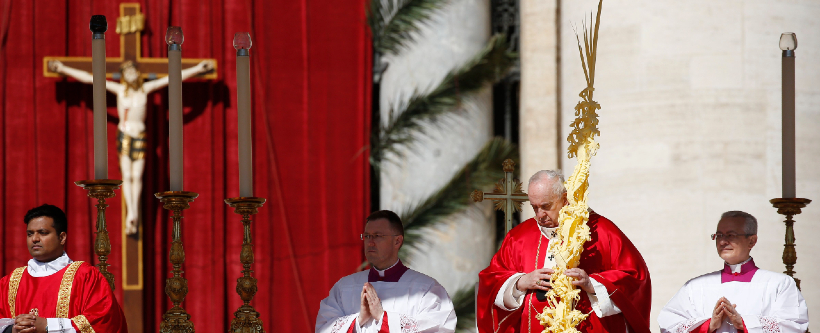
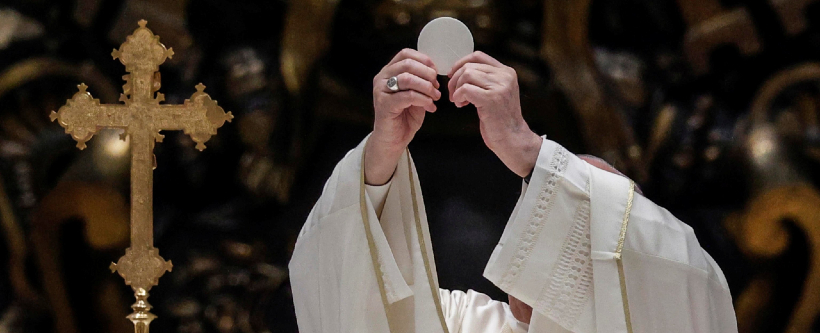
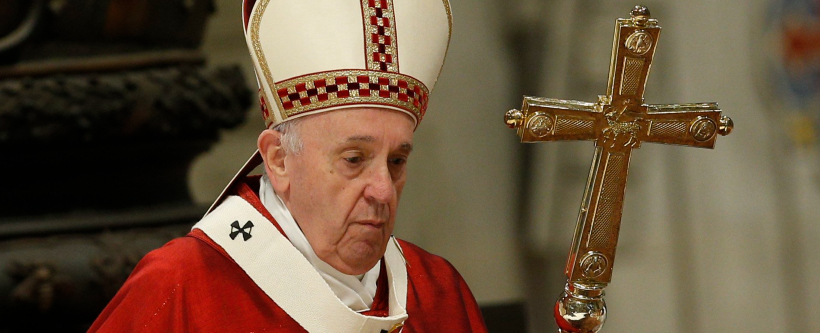
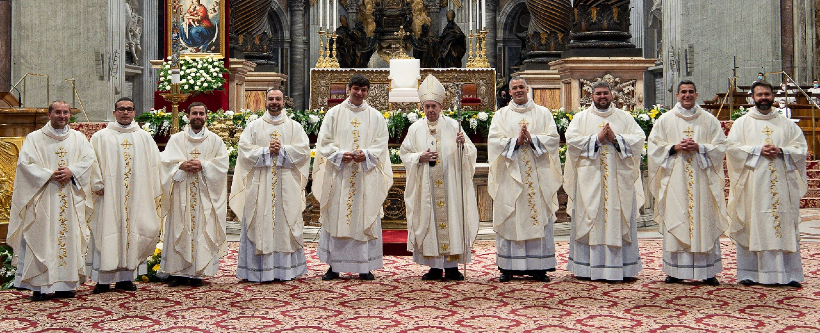
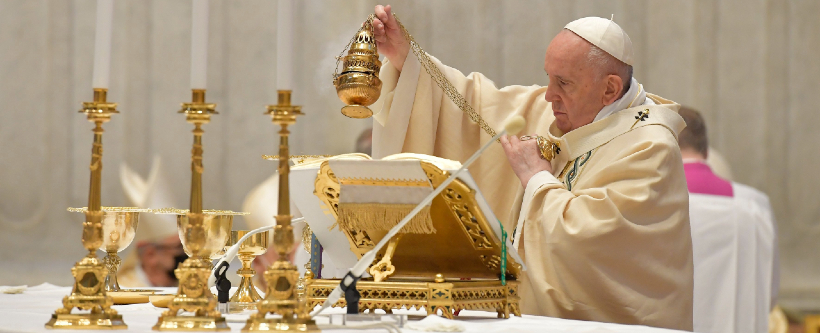
Facebook Comments